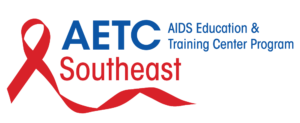Patient-Centered HIV Care in Rural and Underserved Communities: Strategies for Improving Communication, Engagement, and Support Enduring Courses
Recent News & Updates
[display-posts category=”News & Updates” posts_per_page=”5″ orderby=”date”]
Series Overview
Although there is no current cure, HIV can be managed with appropriate treatment and care. Advances in testing, prevention, and treatment can curb the HIV epidemic, yet stigma, lack of awareness, and systemic inequities present barriers to access. Further, HIV has a disproportionate impact on certain populations, particularly in rural and underserved communities of the US.
This 3-part activity series will move through a real-world patient case scenario demonstrating step-by-step how to deliver a positive HIV test result, start early treatment, and provide follow-up care. Expert faculty will provide commentary at the end of each video about best practice strategies for HIV care linkage, retention, and engagement.
Credit
The endurings offer .25 AMA/ANCC/ACPE credit each. All other healthcare professionals completing this course will be issued a statement of participation.
Target Audience
This activity is designed to meet the educational needs of primary care physicians, nurse practitioners, physician assistants, nurses, pharmacists, social workers, and other health professionals who care for patients from rural and underserved areas.
Part 1: Delivering a Positive HIV Test Result – 15 min
Learning Objectives
Upon completion of this activity, participants should be better able to:
- Apply a patient-centered approach to educating patients about HIV prevention, diagnosis, care, and treatment
Part 2: Newly Diagnosed With HIV – Answering Your Patient’s Questions– 15 min
Learning Objectives
Upon completion of this activity, participants should be better able to:
- Use evidence-based communication strategies to counsel patients about risk factors for HIV transmission, how and why it is important to maintain viral suppression, and the implications of treatment as prevention
Part 3: Communicating About HIV Treatment as Prevention– 15 min
Learning Objectives
Upon completion of this activity, participants should be better able to:
- Identify barriers to HIV treatment adherence and methods to overcome these barriers
This activity is jointly provided by Postgraduate Institute for Medicine and Rural Medical Education (RME) Collaborative.


In collaboration with the Southeast AIDS Education & Training Center.

Supported by an independent educational grant from Gilead Sciences, Inc.
Recent News & Updates
[display-posts category=”News & Updates” posts_per_page=”5″ orderby=”date”]

